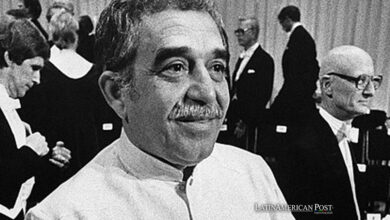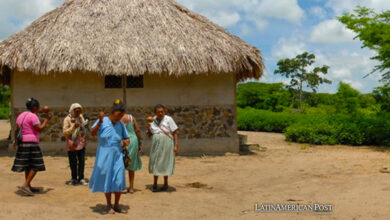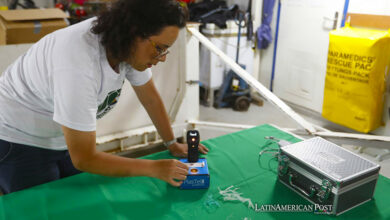What is happening in Colombia?

Here we tell you some points to understand what is happening in Colombia. Photo: Wikimedia-Remux
LatinAmerican Post | Staff
Escucha este artículo
Leer en español: ¿Qué está pasando en Colombia?
Colombia has already completed a little over a week of continuous protests, the result of general and social discontent on the part of different sectors of the population .
Here we tell you some points to understand what is happening in Colombia.
As start?
On April 15, 2021, the government of President Iván Duque passed a tax reform to the Congress of the Republic that proposed taxing pensions, charging VAT on basic necessities and the family basket, taxing funeral services, charging VAT on public services such as Water. The reform also proposed that from 2022 those who earn from 2,400,000 (626 USD), in 2023 from% 1,800,000 (487 USD), declare income.
This caused discontent among the population as the reform aimed to cover the country's indebtedness by collecting taxes, above all, from the middle class. In addition, the reform did not include taxes on sugary drinks or bullfighting shows, which also outraged the public. A national strike was then called on April 28, 2021. Despite the third peak of Covid-19, citizens went out en masse to march in the streets.
Also read: Why are Colombians unemployed on April 28?
What happened during the protests?
On May 3, President Duque withdrew the tax reform from Congress and affirmed that his government will present a new proposal that is the result of consensus. He has therefore met with the leaders of the traditional parties and of his own party, of whom he had also already lost support. On May 4, the Minister of Finance, Alberto Carrasquilla, the main promoter of the reform, resigned from his post. José Manuel Restrepo, former Minister of Commerce, became the new Minister of Finance and the Vice Minister of Finance, Juan Alberto Londoño, who also resigned, became the Minister of Commerce.
He designado como nuevo @MinHacienda a José Manuel Restrepo, quien ocupa actualmente @MincomercioCo. Economista con Maestría en Economía en El London School of Economics y Doctorado en Administración de U. de Bath, exrector U. Rosario, y de enorme vocación de servicio al país.
— Iván Duque ???????? (@IvanDuque) May 3, 2021
Thus, although the reform has been withdrawn, the consensus promised by the president is not yet with the unions or with the sectors that are demonstrating today.
On the other hand, after eight days of national strike and daily protests, there have been human rights violations and excessive use of force by the Police and the ESMAN (Mobile Anti-Riot Squad). Although there are no official figures yet, human rights organizations have kept a record of what is denounced by the public.
The NGO Tremors organization estimates that from 6 am on April 28 to noon on May 5 there have been 1,708 cases of police violence, including 37 victims of homicidal violence and 10 victims of sexual violence. For its part, the Ombudsman's Office has said that until May 5 there are 89 disappeared in the days of protest.
The government has ordered the militarization of some main cities (among them, Cali, where the majority of human rights violations have taken place) and some members of congress (of the government bench) have asked the president to declare a state of internal commotion, which would mean that it could suspend local leaders, restrict social marches and take control of radio and television.
Why do the protesters keep marching?
After seven days of terror in Colombia, the demands of the protesters have grown and become more complex. The marches in recent days have also been solemn for those who have died or been injured after these days of protest. Thus, the most general clamor is the one calling for the police to stop murdering and violent civilians. Among the other demands are the one that is against the health reform that the government is preparing and that the government sits in dialogue tables with the committees that call for the strike and with the unions for the consensus of a new tax reform. The protesters also call for urgent police reform and the prosecution of cases of police violence.
Also read: Points to understand the Health Reform in Colombia
What can you do to help?
- Share this information on your social networks in English, Spanish and other languages to make an appeal to the international community (UN, Inter-American Commission on Human Rights).
- Stay informed and inform your community.
- Donate to organizations that register complaints and provide shelter, refreshments and medical aid to protesters.





